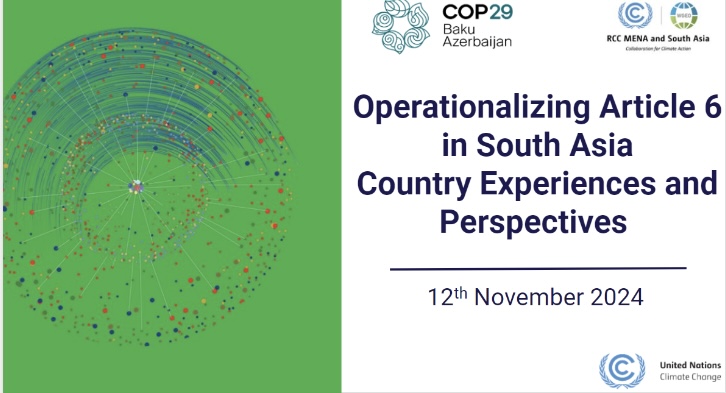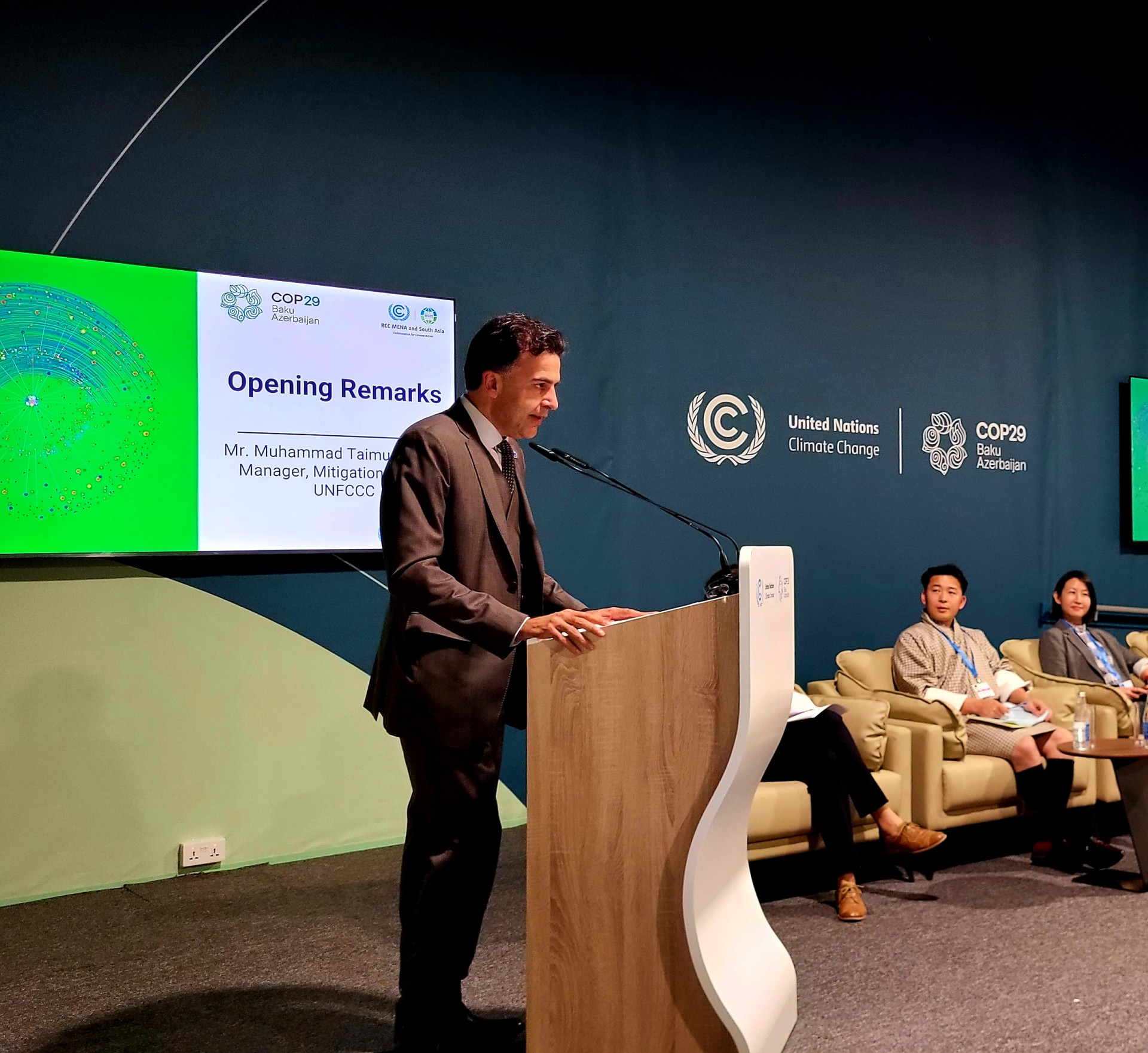0
Operationalising Article 6 in South Asia: country experiences and perspectives
12
Nov.
2024
19:00h
-
20:00h
AZT/UTC+4
Baku, Azerbaijan
Azerbaijan
Special Event Room - Shirvan, Area B
Area B
Mitigation
UNFCCC. Regional Collaboration Centre MENA and South Asia
English
0
Operationalising Article 6 in South Asia: country experiences and perspectives
12
Nov.
2024
19:00h
-
20:00h
AZT/UTC+4
Baku, Azerbaijan
Azerbaijan
Special Event Room - Shirvan, Area B
Area B
Mitigation
UNFCCC. Regional Collaboration Centre MENA and South Asia
English




